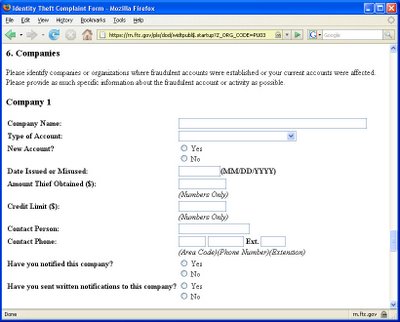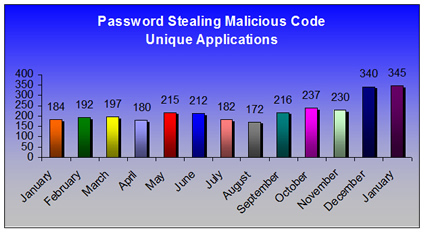Because of this, the accounts can be prone to phishing, and or crimeware (malware) attacks, using keylogging software. When this happens, the phishermen clean out the account and transfer it, elsewhere. E-Gold's terms of service stipulate that once a transfer is done, it cannot be reversed.
It should be noted that Internet criminals use wire transfer services (MoneyGram, Western Union) for the same reason -- they provide a lot of anonymity.
Apparently a task force from the Department of Justice has been looking into the money laundering angle, and is charging E Gold with several federal charges.
Here is a summary of the action against E Gold from the DOJ press release:
A federal grand jury in Washington, D.C. has indicted two companies operating a digital currency business and their owners on charges of money laundering, conspiracy, and operating an unlicensed money transmitting business, Assistant Attorney General Alice S. Fisher of the Criminal Division and U.S. Attorney for the District of Columbia Jeffrey A. Taylor announced today.
The basis of the DOJ charges are:
The indictment alleges that E Gold has been a highly favored method of payment by operators of investment scams, credit card and identity fraud, and sellers of online child pornography. The indictment alleges that the defendants conducted funds transfers on behalf of their customers, knowing that the funds involved were the proceeds of unlawful activity; namely child exploitation, credit card fraud, and wire (investment) fraud; and thereby violated federal money laundering statutes. The indictment further alleges that the defendants operated the E Gold operation without a license in the District of Columbia or any other state, or registering with the federal government, and thereby violated federal and state money transmitting laws. The indictment alleges that this conduct occurred at various times from 1999 through December 2005.
It appears a lot of different federal agencies worked on this investigation:
The case is being investigated by the U.S. Secret Service with the assistance of the IRS and the FBI. The case is being prosecuted by the U.S. Attorney’s Office for the District of Columbia and the Computer Crime and Intellectual Property Section of the Criminal Division. Assistance is also being provided by the Child Exploitation and Obscenity Section and the Asset Forfeiture and Money Laundering Section of the Criminal Division.
Full DOJ press release, here.
Besides allegedly being used to launder money, E Gold is often used in advance fee and auction scams, which trick people into sending their hard earned cash to fraudsters. I've written about the auction, secret shopper, romance, lottery and job variations of advance fee scams on this blog, frequently.
Like the problems with accounts being phished, or their value being drained because of crimeware, little can be done once the gold (converted to a monetary value) has been transferred.
When password details can be stolen, accounts can be taken over, also. This happens happens frequently on auction sites; when trusted accounts are compromised, then used for fraudulent purposes.
Wikipedia has an extensive article about Advance Fee (419), here.
It will be interesting to see how this plays out!




